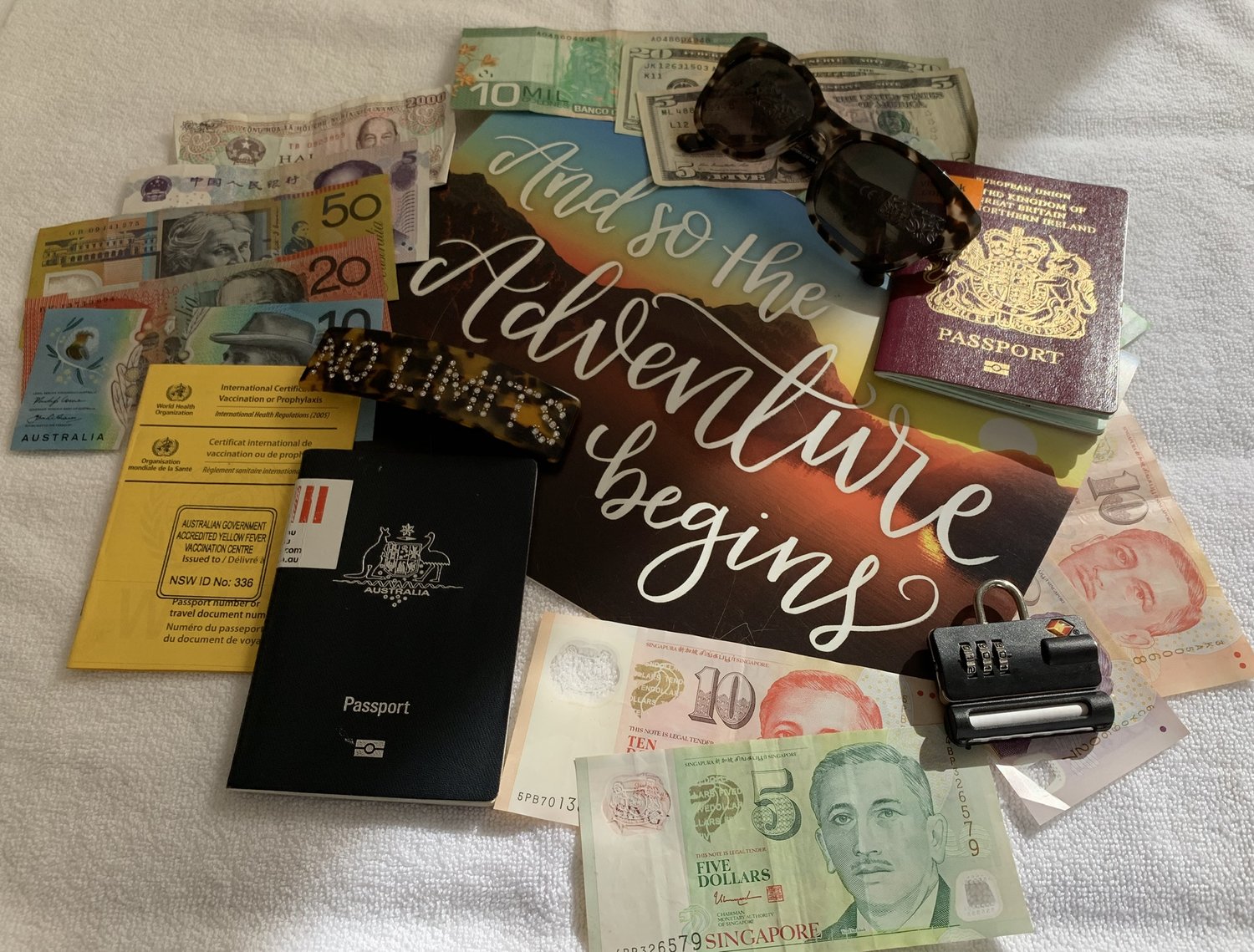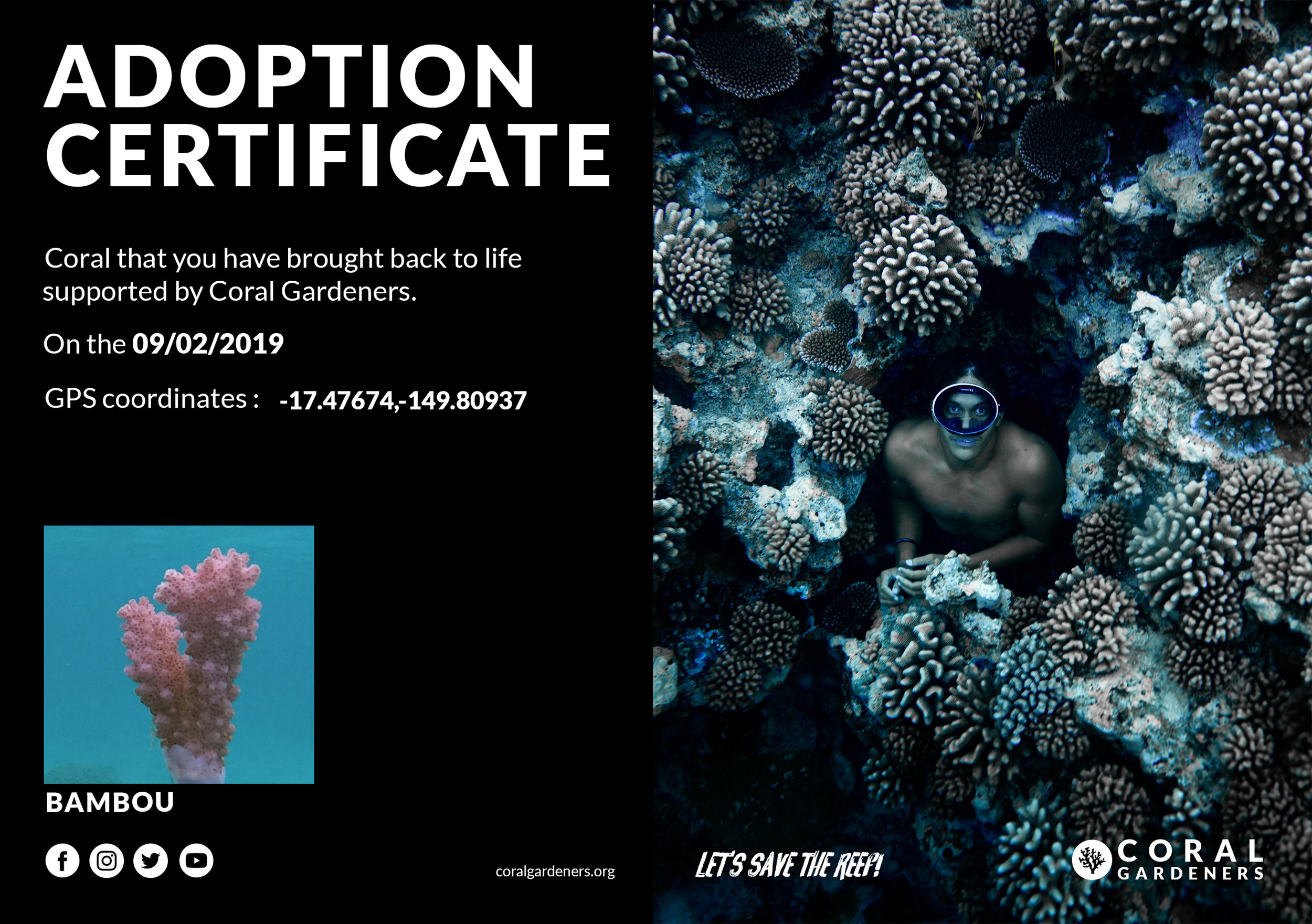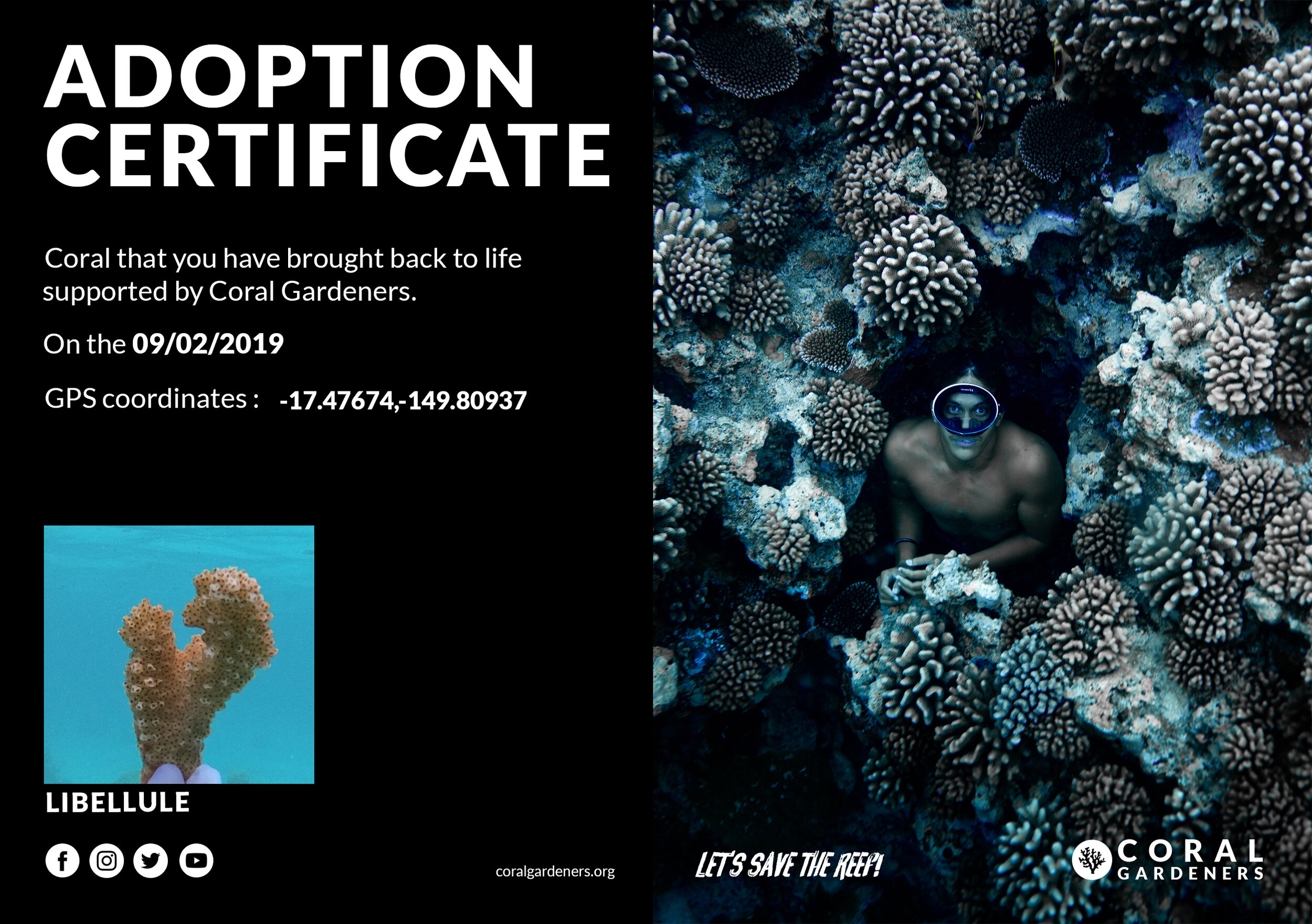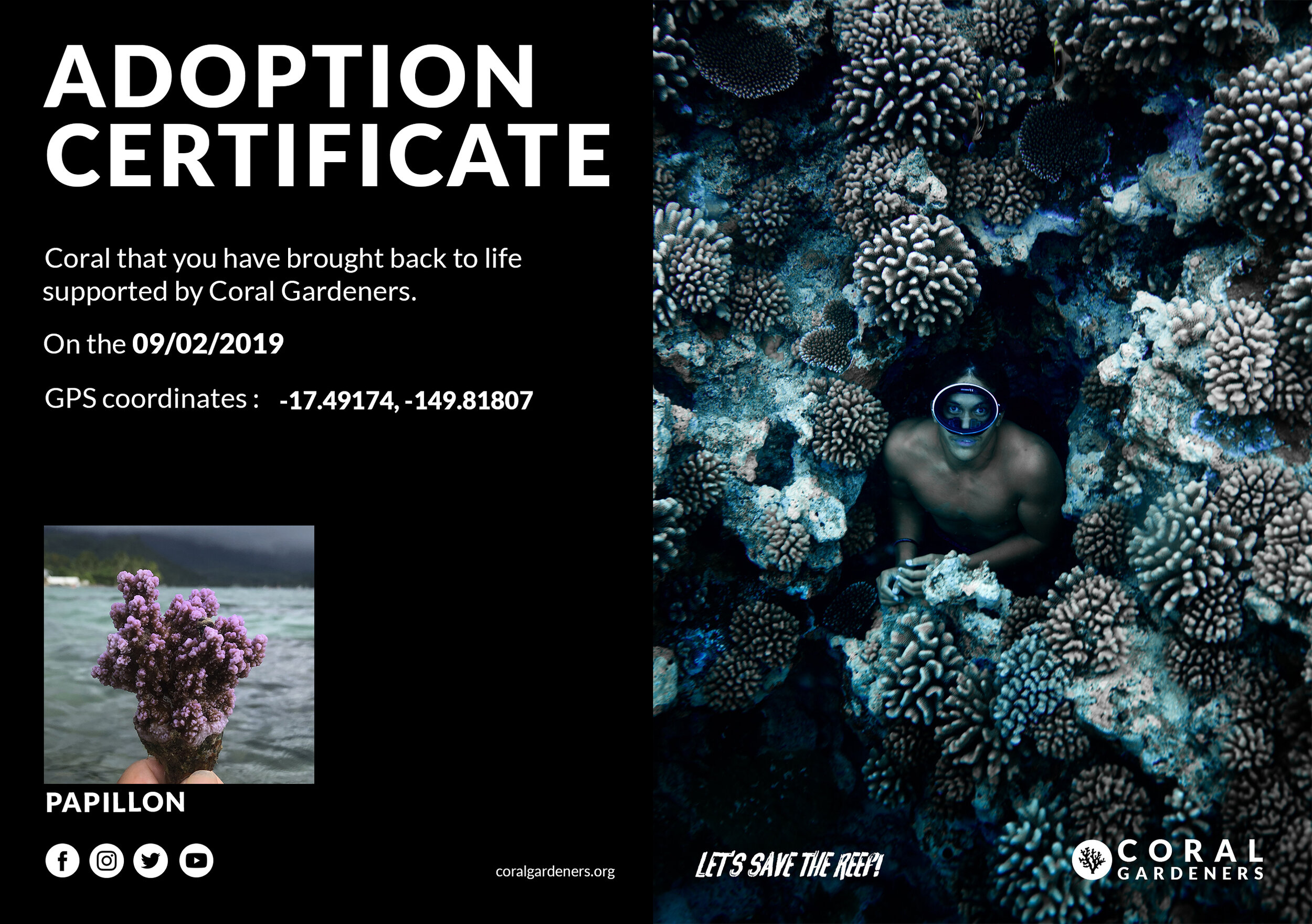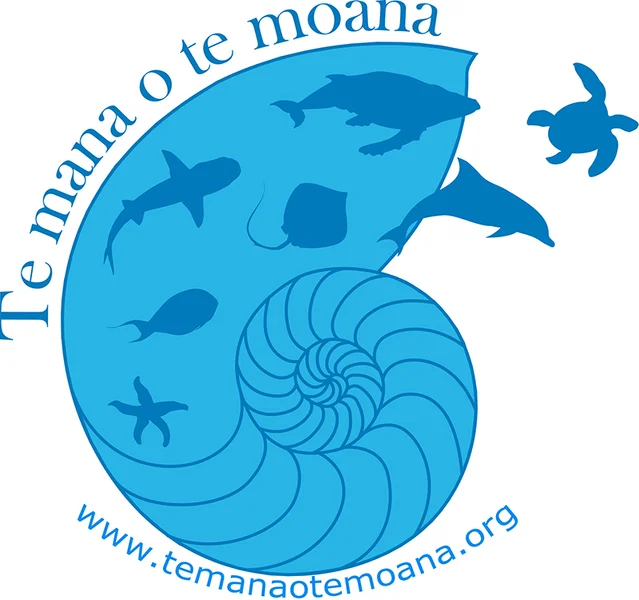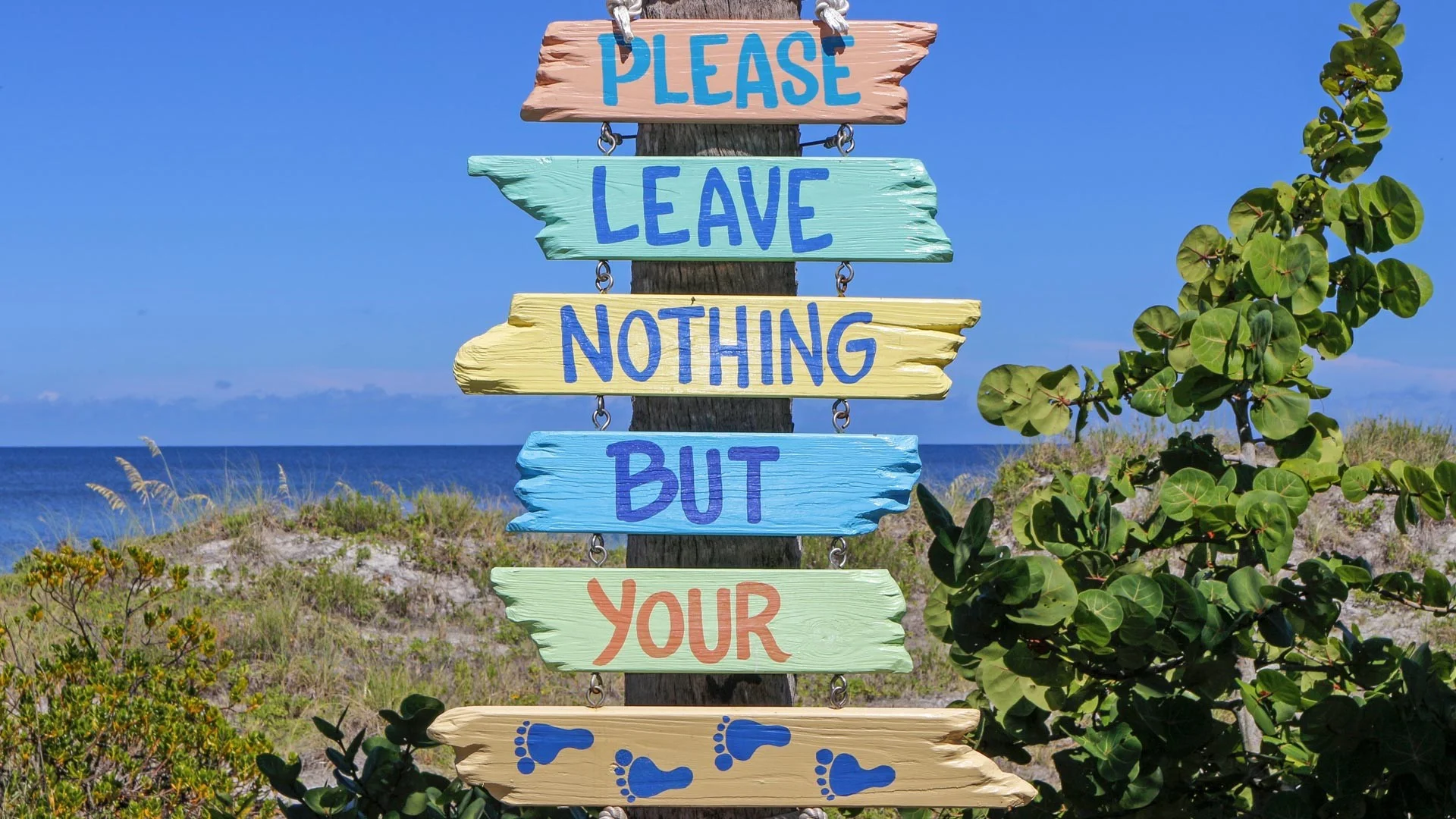Coral Gardeners - regenerating Moorea's coral reef
Today we have a chance to visit a local project called Coral Gardeners to learn more about the amazing coral reef ecosystems which form the backbone of many coastal areas around the world and hear about the work these amazing people are doing to reverse the demise of local reefs .
What are coral reefs ?
Coral reefs are the rainforests of the oceans, providing a home for a dazzling array of life. Reef-building corals are the trees that form the foundation of the ecosystem, almost like an underwater city, providing habitat for more than 25% of all marine species.
Coral reefs consist of colonies of small animals called polyps . There are 1200 species of coral worldwide which grow a hard calcium carbonate skeleton and can live for hundreds of years.
Why are coral reefs important ?
Coral reefs are the oceans’ lungs absorbing co2 from the atmosphere, transforming it into life sustaining oxygen and regulating air and water temperatures.
Over 500 million people worldwide depend on coral reefs for food, resources and income. They also protect coastlines against big waves storms and erosion absorbing 97% of the energy of the waves.
How is the reef ecosystem changing ?
Over half of the world’s coral reefs have been lost in the past 40 years but whilst awareness about the plight of the reefs has increased many people still do not understand the effect the loss of reefs will have on the environment. The main cause of the reef demise is a warmer climate, over-fishing, coastal development and human pollution.
Increased accessibility to coral reefs for global tourism also plays it’s part in causing reef damage. Swimmers, snorkelers and divers access reef areas without understanding that every time they touch the coral with their hands or flippers or stand on the potato corals they cause between 100 and 200 polyps to die.
If these trends continue it is possible that all of the world’s coral reefs will be dead by the year 2050 directly affecting hundreds of millions of people worldwide. A really sad and sobering thought.
Who are the Coral Gardeners ?
Coral Gardeners are a group of young local surfers and free-divers who grew up together and have a love affair with the water which surrounds their island. They have seen first hand the demise of their local reef system so have dedicated their lives to saving their reefs and others around the world.
The Coral Gardener team are passionate about preserving the coral reef and informing the public about how to properly take care of this delicate ecosystem.
They are the only coral gardeners in the world and as reef regeneration is still a new science they connect with other global coral reef reforestation projects to share their learnings and grow their knowledge.
What does a Coral Gardeners Eco tour involve ?
The first time I experienced the beauty of a coral reef was when I visited The Great Barrier Reef in 1993. I was completely amazed by the colours of the coral and the huge variety of beautiful fish which made the reef their home. Sadly, I have seen the terrible changes in the Barrier Reef and many other reefs which I have visited over the past few decades. It saddens me a great deal so I am really interested to understand exactly what the Coral Gardeners do.
We arrive at the Coral Gardeners beach-side hut in Paopao just after lunch where we are given a warm welcome and introduced to the the team.
They explain the origin of the organisation and it is clear from the start that everyone who works here or volunteers for the organisation is passionate about the reef.
The Coral Gardeners objective is to save the coral reefs through education and coral reef restoration. We learn more about the importance of protecting the reef and the challenges faced in it’s protection.
The team educate local children about the importance of the reef, participate in conferences and organise stalls at various events all over the world, spreading both their love for the ocean and what it means to protect it.
We are shown a short video about their work, followed by a Q and A session. They also point us to some other sources of information about the changing reef system, they encourage us to learn more and to spread the word via social media.
How do the Coral Gardeners help reef regeneration ?
Apart from spreading the message about this important issue how do the Coral Gardeners help reef regeneration in Moorea?
The Coral Gardeners team collect broken coral which they fuse onto bamboo stalks and attach to wire tables which are located in the water a few metres from the shore. After three weeks the coral cuttings are ready to be transplanted into degraded areas of the reef in holes which have been drilled into nearby potato corals. There are over two hundred types of coral in Tahiti and due to variations in water temperature and diseases the transplanted coral can only be replanted in the same area where it’ was broken off.
Results are seen quickly as only two weeks after planting the fish start to come back . As the coral fragments continue to grow they help to recreate reef habitats and strengthen the reef against future damage.
But the job of the Coral Gardeners does not stop when the coral cuttings have been planted. The transplanted corals have to be cleaned every day to remove any algae growth as there is still a risk of contamination. This is a never ending job and takes up a lot of the team’s time so volunteers play a vital role in cleaning freeing up the rest of the team to plant more coral and spread the message about the threats to the world’s coral reef.
It really is an amazing project and having learned so much we are now all excited to have the chance to do a small part in reef regeneration really take part in saving the coral reef.
Planting our coral cuttings
This is the part of the Eco Tour we’ve all been waiting for as it’s time to put on our mask and snorkel and head into the water to plant our very own coral cutting. You can feel the excitement among all the visitors as we are divided into two groups and each allocated a number. After a few formalities and a safety briefing we follow one of the team members into the water.
We head a little way off shore towards a planting table where we take it in turns to duck down into the water and select our own coral. I pick a small lilac coloured coral. It might not be the largest coral cutting there but I love the colour and feel it will be a good edition to the regenerated reef area.
We follow our guide to another area where a potato coral host has been drilled ready for the new cuttings. The water in both areas is not too deep so it’s easy to touch the bottom, but if you feel nervous, as one of the group did, the team are very supportive and happy to handhold you through the process. At the potato coral we duck down into the water again and plant our cuttings in the pre-drilled holes then we head back to the shore feeling very proud of ourselves.
Whilst we are drying off and getting dressed we chat animatedly about the work that these amazing people do. We are given the chance to adopt the corals which we just planted and can name the coral and are given a certificate with a photo of the cutting which includes the geographic co-ordinates. The cost is $30 USD per coral. It seems a small price to pay for the opportunity to help regenerate the reef so I decide to adopt three of them.
How can you help the Coral Gardeners ?
The Coral Gardeners are a small team doing amazing work. Jack Johnson the famous American singer has visited their project and has seen their work firsthand and is now starting a similar project in Hawaii.
We can’t all be lucky enough to visit Moorea as I did with my Bamboo group, but I’m sure that many of you would like to know how you can help them to expand their work.
There are a number of ways you can do this.
Vounteering - They are always looking for volunteers who normally join them for periods of between 3 weeks and 6 months and help with the essential work of the daily coral cleaning.
Donations - If volunteering isn’t an option then you can help them by making a donation via their website - https://www.coralgardeners.org/ The team need to raise funds to build more tables to grow coral cuttings. They are currently planting in four spots and need ten tables at each spot . It is expensive to build the tables so cash donations would be very welcome.
Adopt a coral - I would recommend this to everyone who cares about the ocean and it’s wildlife. You can either adopt one single coral or many. As the coral can be named after the recipient this would make a great gift for the person who seems to have everything. There is also the option to adopt a whole nursery table so perhaps you can get your employer involved to show their commitment to the environment. To adopt a coral go to : https://www.coralgardeners.org/adopt-corals
Spread the word about the importance of coral reefs via social media - We have seen recently how the actions of the young activist Greta Thunberg have accelerated the conversations about climate change and are now making this a topic which can no longer be swept under the carpet.
We need to create the same awareness about the plight of the world’s coral reefs so I would encourage you to use you social media presence to spread the word. There are a number of great videos on the subject i.e.
50 Minutes To Save The World - https://www.youtube.com/watch?v=wthTmQHmuZ0
Coral Gardeners website https://www.coralgardeners.org/film
Chasing coral - https://www.chasingcoral.com/
Please share these to your Facebook, Instagram, Twitter, Linked In, Snapchat, Tumblr, Pinterest or other social media platforms and encourage your friends and followers to do the same.
Comment
This was a very special stop on my trip to Moorea. These guys are amazing. Their love of their island waters and their mission to share information about the damage we humans are doing to their beautiful reef ecosystem is inspirational. If you ever get visit Moorea this Eco Tour is an absolute must.
Finally something that gives us hope!

